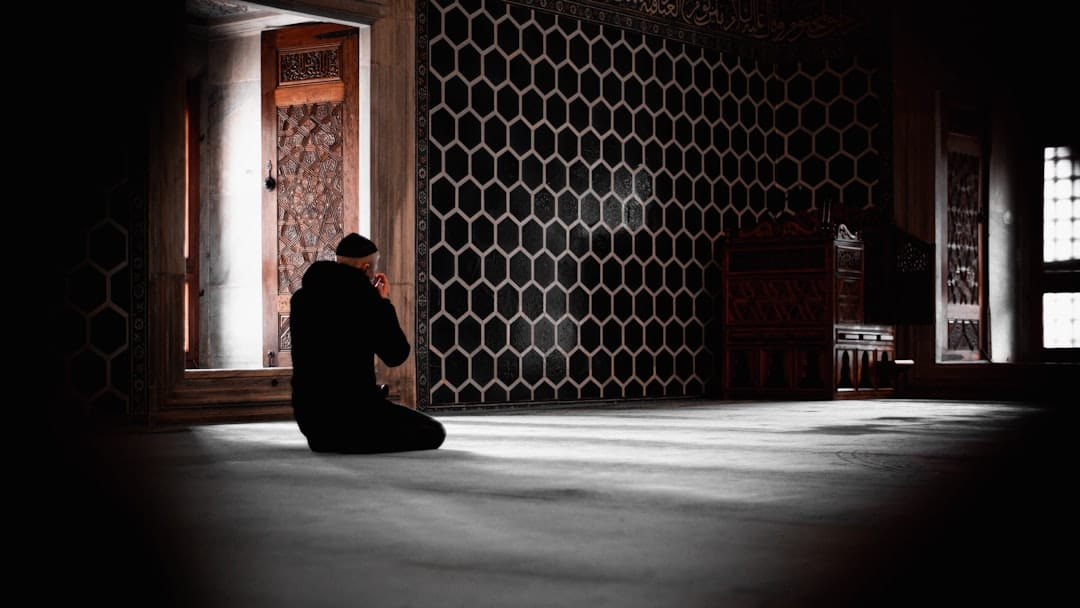The journey through life’s uncertainties can feel overwhelming, especially when we stand at crossroads and yearn for clarity beyond our limited vision. In Islam, the remedy for such moments lies not in frantic searching but in the serene act of turning to Allah through heartfelt duʿāʾ—supplications that illuminate the soul and guide the mind. Whether you are deciding on a career change, contemplating marriage, or simply seeking daily direction, the Qur’an and Sunnah offer a treasury of powerful duas for guidance and wisdom that have guided believers for fourteen centuries.
Understanding Duʿāʾ as the Believer’s Compass
Duʿāʾ is more than a ritual; it is an intimate conversation with the Creator, a spiritual GPS that recalibrates the heart toward divine purpose. Linguistically, the word means “to summon” or “to call out,” but in practice it is the most profound expression of dependence on Allah. When we ask for guidance (hidāyah) and wisdom (ḥikmah), we acknowledge two truths simultaneously: our innate inability to see all outcomes and Allah’s infinite knowledge and mercy.
The Qur’anic Blueprint: Ayat al-Hidāyah
Surah al-Baqarah, verse 186, encapsulates the essence of duʿāʾ: “And when My servants ask you, [O Muḥammad], concerning Me—indeed I am near. I respond to the invocation of the supplicant when he calls upon Me.”
This promise guarantees that every sincere plea for guidance is heard, even when the answer arrives in unexpected ways or timing.
Key Components of Duʿāʾ for Guidance and Wisdom
1. Intention (Niyyah)
The first ingredient is a clear, sincere intention to seek what is best in both worlds. The Prophet ﷺ taught that “actions are but by intentions,” so before uttering the words, center your heart on pleasing Allah rather than merely escaping discomfort.
2. Humility and Presence (Khushūʿ)
True guidance-seeking duʿāʾ requires mental stillness. Turn off distractions, face the qiblah if possible, and imagine yourself standing in the court of the Most High. The posture of humility—whether seated, prostrating, or raising your hands—amplifies the soul’s receptivity.
3. Adhkar and Qur’anic Phrases
Infusing your duʿāʾ with prophetic wording adds barakah (spiritual blessing). Examples include:
“Rabbanā ātinā min ladunka raḥmah…” (Our Lord, grant us mercy from Yourself…) “Allāhumma ṣalli wa sallim ʿalā sayyidinā Muḥammad…” (Sending blessings upon the Prophet ﷺ opens doors of acceptance.)
Benefits and Importance
| Benefit | Scriptural Evidence | Practical Impact |
|---|---|---|
| Inner Peace | “Those who believe and whose hearts find rest in the remembrance of Allah…” (13:28) | Reduces anxiety and decision paralysis. |
| Clarity of Vision | The Prophet’s ﷺ duʿāʾ: “O Allah, show me the truth as truth…” (Authentic duʿāʾ) | Discerns right from wrong amid conflicting advice. |
| Protection from Harm | “And whoever fears Allah—He will make for him a way out.” (65:2) | Shields from long-term regret and hidden pitfalls. |
Most Powerful Duas for Guidance and Wisdom
1. The Duʿāʾ of Istikhārah: The Guided Decision Prayer
When facing a fork in the road—be it a job offer, potential spouse, or major investment—Salat al-Istikhārah is the prophetic prescription. After praying two optional rakʿahs, recite:
“Allāhumma innī astakhīruka biʿilmika, wa astaqdiruka biqudratika, wa asʾaluka min faḍlika… (O Allah, I seek good through Your knowledge, power through Your might, and I ask of Your immense bounty…)”
Key etiquette: Perform it before sleeping, free from major sins, and be open to outcomes—even if they contradict your initial desire. Signs of acceptance may appear in dreams, a sudden change of circumstances, or an unexplainable sense of ease or unease.
2. The Duʿāʾ of Prophet Mūsā (AS): “Open My Heart”
After being tasked with confronting Pharaoh, Mūsā (AS) pleaded:
“Rabbi ishrah lī ṣadrī, wa yassir lī amrī… (My Lord, expand for me my chest, and ease for me my task…)” (20:25–28)
This duʿāʾ is ideal when you feel overwhelmed by responsibility. Recite it before delivering a khutbah, entering a negotiation, or any daunting endeavor.
3. The Duʿāʾ of Prophet Sulaymā(AS): The Wisdom of Judgement
Seeking wisdom beyond worldly knowledge, Sulaymā(AS) prayed:
“Rabbi awziʿī an ashkura niʿmataka allatī anʿamta ʿalayya wa ʿalā wālidayya…” (27:19)
While the verse outwardly mentions gratitude, classical commentators note that gratitude is the gateway to wisdom, for it trains the intellect to perceive blessings and their proper use.
4. The Duʿāʾ of Khidr: “Grant Me Knowledge”
Although not explicitly attributed to Khidr, the Qur’anic verse “Rabbi zidnī ʿilmā” (20:114) is universally recommended for students, scholars, and lifelong learners. Recite it after ṣalāh, before studying, or when teaching others.
5. The Duʿāʾ of the Prophet ﷺ: “O Allah, Benefit Me with Knowledge”
In Sunan Abī Dāwūd, the Prophet ﷺ taught:
“Allāhumma infaʿī bimā ʿallamtanī, wa ʿallimnī mā yanfaʿunī, wa zidnī ʿilmā…”
Pair this with daily reading of Qur’an, for wisdom is the fruit of revealed knowledge.
Practical Applications
1. Morning and Evening Adhkar
The Prophet ﷺ said, “Whoever recites the morning adhkar will not be struck by any calamity until evening.” Among these are concise yet potent duas:
- “Allāhumma inni asbaḥtu ush-hiduka…” (O Allah, I begin the day calling You as witness over my soul…)
- “Allāhumma ʿālim al-ghaybi wa al-shahādah…” (Knower of the unseen and the seen…)
By embedding these into your commute or dawn routine, you request continuous guidance throughout the day.
2. The Five Daily Prayers
Every Fard ṣalāh contains Surah al-Fātiḥah, whose verse “Guide us to the straight path” is recited at least 17 times. Treat each recitation as a mini-duʿāʾ; pause briefly after “ihdinā al-ṣirāṭ al-mustaqīm” and visualize the path you need illuminated that hour.
3. Study Circles & Seeking Counsel
Before attending a ḥalaqah or consultation, recite the duʿāʾ of ṣabr and baseerah (insight). Then:
Take notes on every āyah or ḥadīth that stirs your heart. After the session, perform two rakʿahs of Salat ash-Shukr (gratitude prayer). Review your notes the next morning with fresh eyes; often, new wisdom surfaces.
4. Digital Detox & Reflection
Purposefully disconnect from screens for 30 minutes before Fajr and after Maghrib. In these quiet windows, recite the duʿāʾs above while journaling your thoughts. Over weeks, patterns emerge—subtle nudges toward or away from certain choices.
Frequently Asked Questions
What is the difference between duʿāʾ and Salat al-Istikhārah?
While every istikhārah is a duʿāʾ, not every duʿāʾ is istikhārah. Duʿāʾ is a broad term for any supplication, whereas Salat al-Istikhārah is a specific two-rakʿah prayer followed by a prescribed wording used when choosing between permissible alternatives. Think of duʿāʾ as the daily conversation and istikhārah as a formal consultation.
Can I make duʿāʾ in my own language?
Absolutely. The Qur’an encourages calling upon Allah in any tongue: “Call upon Allah or call upon the Most Merciful; whichever [name] you call—to Him belong the best names.” (17:110). However, learning the Arabic prophetic phrasing adds precision and barakah.
How long should I wait for an answer after istikhārah?
There is no fixed timeline. Some believers sense guidance within a day; others witness gradual clarity over weeks. The critical mindset is active surrender—continue researching, seek counsel, and watch for doors opening or closing.
Is there a best time of day for duʿāʾ?
The last third of the night is described as the time when Allah descends to the lowest heaven, asking, “Is there anyone supplicating that I may answer him?” Yet any moment after obligatory prayers, during prostration, or while fasting is also highly accepted.
What if I still feel confused after making duʿāʾ?
Confusion can be the answer itself—a signal to wait. The Prophet ﷺ said, “Deliberation is from Allah, and haste is from Satan.” Persist in patience, continue good deeds to polish the heart’s mirror, and revisit the matter after a week of consistent Qur’an recitation.
Can women recite these duas during menstruation?
Yes, all forms of duʿāʾ are permissible regardless of state of ritual purity. The only restriction is direct recitation of Qur’an from the muṣḥaf (physical copy).
How do I teach these duas to children?
- Create a bedtime routine: one ayah + its meaning + practical example (“Tonight we ask Allah to help us choose friends wisely”).
- Use colorful flashcards with the Arabic and transliteration.
- Encourage them to whisper the duʿāʾ into their palms and blow gently, symbolizing sending their words to Allah.
Conclusion
Every step of the believer’s journey is lit by the lantern of duʿāʾ. From the whispered plea of a child learning
























Post Comment